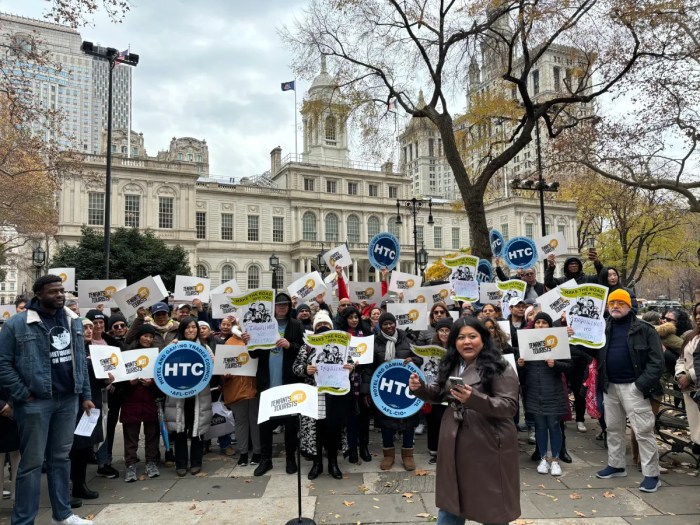POLITICAL NEWS Analysis
(AP) Lost last week in the big and many-tentacled deal that was quickly sealed behind closed doors, printed and voted into law in the dead of night was the return of one of the most criticized remnants of Albany’s once-infamous dysfunction.
Gov. Andrew Cuomo again chose to use what’s called messages of necessity, and the move was quickly accepted by the Legislature. The messages suspend a constitutionally required three-day waiting period on bills designed to give the public, press and lawmakers time to examine secretly struck deals before surprise details emerge too late.
The messages were originally intended to be used in case of emergencies. Between midnight and dawn last Thursday, Mar. 15, they were used to allow much of the agreement that created a new public pension system, expanded DNA sampling and set in motion a constitutional amendment to build up to seven casinos to be passed.
Cuomo has made the politically expedient shortcut routine for major bills, just months after a judge chastised the practice. Even good-government groups that howled when previous governors used the measure far less frequently accepted it last week, which also happened to be the annual Sunshine Week dedicated to openness in government.
The decision by a governor overrides a committee system in the State Senate and Assembly as well as the joint conference committees created under a reform that attempted to force at least some public debate on major policy issues.
Instead, Albany’s notorious “three men in a room” talks involving the governor and the majority leaders of the Assembly and Senate continue. A senior Cuomo administration official last week confirmed even that has, most often, become just two men in a room: Cuomo negotiates individually with Senate Majority Leader Dean Skelos and Assembly Speaker Sheldon Silver. The Republican Skelos and Democrat Silver have a frosty relationship at best.
So about the way a bill is supposed to become a law?
“It’s a flawed process,” Cuomo said.
“One of the dysfunctions of Albany is they never stop,” Cuomo said last Thursday of legislators. “They never conclude, they don’t act.”
In 15 months in office, he’s used private negotiations and messages of necessity to legalize gay marriage, enact a two percent cap in the growth of property taxes, pass a timely budget with a rare cut and double the database of DNA samples from criminals. All had languished for years.
“Government is supposed to function,” Cuomo said. “It’s not a debating society.”
Dick Dadey of Citizens Union, one of the good-government groups that has spent years criticizing the swift secrecy of lawmaking in Albany, understands his point.
“Government is ultimately judged by how effective and efficient it is in meeting the needs of its citizens,” Dadey said. “We always would like to see it achieved through an open and transparent process. The sad reality is sometimes it’s not.”
Inside the Albany’s majority conferences, a compromise on a major bill will last only as long as members can withstand pressure of lobbyists and powerful interests groups, which these days can quickly flood TV and radio markets to incite the public.
“You can’t sit there once you’ve made the decision to compromise and allow it to essentially be picked apart,” said Richard Brodsky, a 30 year veteran of the Assembly’s Democratic majority and now a senior fellow at the Wagner School at New York University.
“Every legislative body and governor across the nation are subject to the exact same criticism,” he said. “This is the alternative to impasse.”
It’s all so much neater and easier. But democracy isn’t supposed to be neat and easy. It replaced neat and easy.
In November, Acting State Supreme Court Judge Robert Wiggins slammed the secretive, fast-track approval and vote for the landmark gay marriage bill.
“Clear arm-twisting by the Executive on the Legislative (branch) permeates this entire process,” the Livingston County judge wrote.
The Brennan Center for Justice at New York University Law School said messages of necessity should be reserved for emergencies, not political expedience.
Even Cuomo, in a video message after winning election in 2010, promised to “lift the veil of secrecy that is now around Albany because I want you to know what the issues are and who is doing what.”
Last Friday, Mar. 16, Assemblymen Jim Tedisco, Steve McLaughlin, and Tony Jordan drafted a bill that would end legislative proceedings at midnight short of a compelling, real emergency.
“The ends never justify the means,” Tedisco said. “There are dictators across the world that can say every day, ‘Look what I got done.'”




































